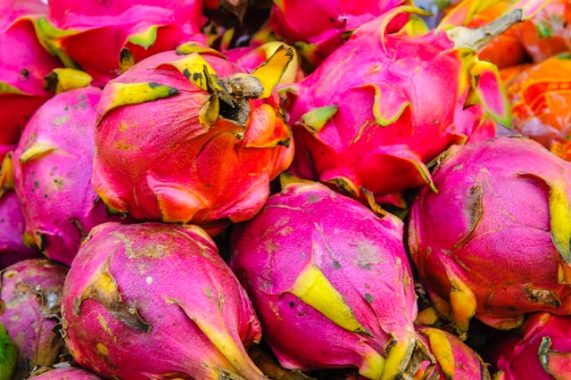- The Vietnam Fruit and Vegetable Association and the Guangxi-ASEAN Trade Promotion Association step up fruit trading between the two countries
- Only nine fresh fruits from Vietnam are currently permitted to be exported to China via official channels
- Vietnam is working to pave the way for other fruits to enter the Chinese market
Vietnam and China have agreed to cooperate in agriculture and fruit sale to facilitate farm produce trading amid difficulties caused by the COVID-19 pandemic.
The Vietnam Fruit and Vegetable Association and the Guangxi-ASEAN Trade Promotion Association signed a memorandum of understanding (MOU) on August 2 to step up fruit trading between the two countries, reported Vietnam News Agency (VNA).
At present only nine fresh fruits from Vietnam are permitted to be exported to China via official channels, namely, dragon fruit, watermelon, lychee, longan, banana, mango, jackfruit, rambutan, and mangosteen.
Vietnam’s Ministry of Agriculture and Rural Development is working to pave the way for other fruits, including durian, pomelo, passion fruit, avocado, and coconut, to enter the Chinese market, which has temporarily licensed the import of sweet potato and chili from Vietnam.
Farm produce trading between the two countries has been thriving in the recent time. However, due to the COVID-19 pandemic’s impact, bilateral trade of agricultural products in 2020 dropped by over 4% year-on-year to more than US$14.3 billion, said VNA.
Vietnam exported $1.8 billion worth of fruits and vegetables to China last year, down 25.7%. In the first half of 2021, the shipments rose 16% from a year earlier to $1.2 billion.
Vietnamese vegetables and fruits are still mainly exported fresh, accounting for about 80% of the total, while processed fruit and vegetable products account for the remaining 20%, according to a Vietnamnet report. However, exports to China are still in the form of unofficial quotas (border trade) and trade exchanges between border residents.
The potential for agricultural product trade is believed to remain huge as Vietnam ranks 17th in the world and second in ASEAN among agricultural product exporters, while China is the top destination of Vietnamese fruits and vegetables, receiving over 64% of the total exports of these commodities in 2020.
The recently signed MOU is expected to create an opportunity for associations and businesses in Vietnam to coordinate with their Chinese counterparts to step up ties in farm produce production, processing, and trading amid challenges caused by the pandemic.
Photo by Alexander Schimmeck on Unsplash









